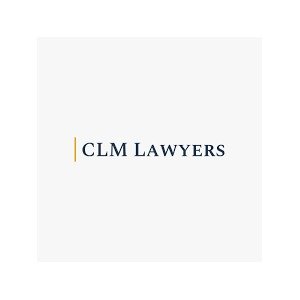Best Natural Resources Lawyers in Hong Kong
Share your needs with us, get contacted by law firms.
Free. Takes 2 min.
Or refine your search by selecting a city:
List of the best lawyers in Hong Kong
About Natural Resources Law in Hong Kong
The natural resources sector in Hong Kong encompasses a wide array of areas including land, water, minerals, energy resources, and biodiversity. As a highly urbanized region with limited natural resources, Hong Kong faces unique challenges and regulations concerning the use and preservation of its natural environment. The laws governing natural resources are designed to balance economic development with environmental protection, ensuring sustainable use for future generations.
Why You May Need a Lawyer
There are several situations where you might require legal assistance in the realm of natural resources in Hong Kong. These include:
- Land Use and Development: Engaging in property development or changes in land use may require expertise in local zoning laws and environmental regulations.
- Environmental Compliance: Businesses must comply with various environmental regulations; legal counsel can help navigate these complex requirements.
- Disputes over Resource Use: Conflicts may arise over the allocation or use of natural resources, necessitating legal intervention.
- Licensing and Permits: Obtaining appropriate permissions for the use of natural resources can be intricate, warranting legal guidance.
- Conservation Efforts: Participation in or opposition to conservation projects may involve legal considerations.
Local Laws Overview
In Hong Kong, natural resource-related laws are influenced by local ordinances and international agreements. Key components include:
- Environmental Impact Assessments (EIA): Essential for major developments, ensuring projects comply with environmental standards.
- Town Planning Ordinance: Regulates land use planning and development control.
- Air Pollution Control Ordinance: Governs air quality management to protect public health and the environment.
- Water Pollution Control Ordinance: Addresses the prevention and control of water pollution.
- Waste Disposal Ordinance: Manages waste disposal and promotes reduction, reuse, and recycling.
Frequently Asked Questions
What constitutes natural resources in Hong Kong?
Natural resources in Hong Kong include land, minerals, energy sources, water, and biodiversity.
What is sustainable use of natural resources?
Sustainable use refers to utilizing resources in a way that meets current needs without compromising future generations' ability to meet their own needs.
How can I determine if my project requires an Environmental Impact Assessment?
Projects likely to have significant environmental impacts generally require an EIA. It is advisable to consult with legal experts or refer to the Environmental Protection Department's guidelines.
What are the penalties for non-compliance with environmental laws in Hong Kong?
Penalties can include fines, imprisonment, and orders to cease operations or undertake remedial measures. The severity depends on the nature and extent of the non-compliance.
How do I apply for a license to exploit natural resources?
Applications are typically submitted to relevant governmental bodies, such as the Environmental Protection Department or the Lands Department, depending on the resource type.
Can natural resource disputes be settled outside of court?
Yes, disputes can be resolved through negotiation, mediation, or arbitration, which are often faster and less costly than litigation.
What organizations govern natural resource management in Hong Kong?
The Environmental Protection Department, the Agriculture, Fisheries and Conservation Department, and the Planning Department are key organizations involved.
Is there a legal framework for renewable energy development in Hong Kong?
Yes, the government has policies in place to encourage renewable energy development, including feed-in tariffs and tax incentives.
How does Hong Kong address climate change through resource management?
Hong Kong has policies and plans aimed at reducing carbon emissions, enhancing energy efficiency, and promoting sustainable practices to combat climate change.
What role do environmental NGOs play in Hong Kong’s natural resource management?
NGOs play a critical role by advocating for sustainable policies, engaging in conservation projects, and raising public awareness on environmental issues.
Additional Resources
For further assistance, consider reaching out to the following organizations:
- Environmental Protection Department (EPD): Offers guidelines and information on environmental regulations.
- Hong Kong Bar Association: Provides access to legal professionals and advice.
- WWF Hong Kong: Engages in conservation projects and public education.
- Green Council: Focuses on promoting sustainable practices and education.
Next Steps
If you need legal assistance with natural resources issues in Hong Kong, consider the following steps:
- Identify Your Needs: Clearly define your legal issue and what you hope to achieve.
- Research Potential Lawyers: Look for lawyers or law firms specializing in natural resources or environmental law.
- Consultation: Schedule consultations to discuss your case and explore your legal options.
- Documentation: Gather all relevant documents and information pertaining to your legal issue to assist your lawyer.
- Engagement: Officially engage a lawyer to represent or advise you on your issue.
Lawzana helps you find the best lawyers and law firms in Hong Kong through a curated and pre-screened list of qualified legal professionals. Our platform offers rankings and detailed profiles of attorneys and law firms, allowing you to compare based on practice areas, including Natural Resources, experience, and client feedback.
Each profile includes a description of the firm's areas of practice, client reviews, team members and partners, year of establishment, spoken languages, office locations, contact information, social media presence, and any published articles or resources. Most firms on our platform speak English and are experienced in both local and international legal matters.
Get a quote from top-rated law firms in Hong Kong — quickly, securely, and without unnecessary hassle.
Disclaimer:
The information provided on this page is for general informational purposes only and does not constitute legal advice. While we strive to ensure the accuracy and relevance of the content, legal information may change over time, and interpretations of the law can vary. You should always consult with a qualified legal professional for advice specific to your situation.
We disclaim all liability for actions taken or not taken based on the content of this page. If you believe any information is incorrect or outdated, please contact us, and we will review and update it where appropriate.
Browse natural resources law firms by city in Hong Kong
Refine your search by selecting a city.
















